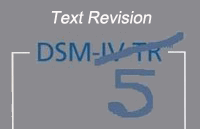 Sally Satel, psychiatrist, scholar and co-author of the forthcoming book “Brainwashed: The Seductive Appeal of Mindless Neuroscience,” challenges the authority of the soon-to-be-published DSM-5, the diagnostic “Bible” in the psychiatric world.
Sally Satel, psychiatrist, scholar and co-author of the forthcoming book “Brainwashed: The Seductive Appeal of Mindless Neuroscience,” challenges the authority of the soon-to-be-published DSM-5, the diagnostic “Bible” in the psychiatric world.
The DSM is an imperfect guide to predicting what treatments will benefit patients most, she writes, because of the multiple and complex factors that contribute to mental illness. The following is a selection of her longer New York Times article (Why the Fuss Over the DSM-5, 5.11.13).
* * *
Later this month, the American Psychiatric Association will unveil the fifth edition of its handbook of diagnoses, the Diagnostic and Statistical Manual of Mental Disorders (DSM). Fourteen years in the making, the DSM-5 has been the subject of seemingly endless discussion.
There are dozens of revisions in the DSM — among them, the elimination of a “bereavement exclusion” from major depressive disorder and the creation of binge eating disorder — but they won’t alter clinical practice much, if at all. This is because psychiatrists tend to treat according to symptoms.
So why the fuss over DSM-5? Because of the unwarranted clout that its diagnoses carry with the rest of society: They are the passports to insurance coverage, the keys to special educational and behavioral services in school and the tickets to disability benefits.
This is a problem because the DSM is an imperfect guide to predicting what treatments will benefit patients most — a reality tied to the fact that psychiatric diagnoses are based on clinical appearances that tend to cluster, not on the mechanism behind the illness, as is the case with, say, bacterial pneumonia.
Simply naming a mental illness does not necessarily point the way to effective treatment. This is why patients often qualify for more than one diagnosis, and why many have poor responses to medications.
Psychiatric assessment is imprecise because the causal systems that drive mental illness are daunting. Dozens of genes contribute to the development of the disorders we call autism, schizophrenia, bipolar illness, severe depression and ADHD. Two people with the same genetic predisposition to mental illness may manifest their conditions differently. Why? Because a patient’s clinical picture depends on a jumble of other factors, including childhood adversity, head trauma, life experience and simple chance.
The media will trumpet the release of the new DSM, but practicing psychiatrists will largely regard it as a nonevent. Unfortunately, the same cannot be said for other institutions — insurance companies, state and government agencies, and even the courts — which will continue to imbue the DSM with a precision and an authority it does not have.